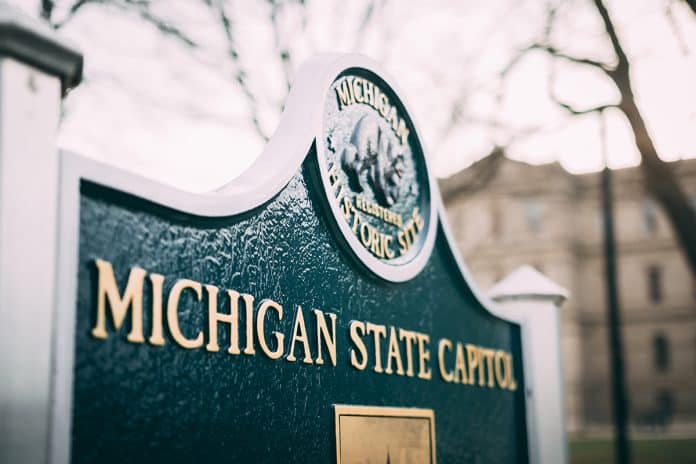LANSING, Mich. – The Michigan Marijuana Regulatory Agency (MRA) on March 1 released an advisory bulletin with guidelines for the next phases of recreational cannabis sales rollout in the state.
The process outlined in the advisory said the MRA will allow only licensed producers to bring cannabis products to market—a function previously served by caretakers and medical marijuana providers. Eventually, the process will transfer cannabis flower crops from caregivers to licensed operators for processing and sales.
Between March 1 and May 31, according to the advisory, the first phase will begin. Medical cannabis advocates and cannabis consumers have voiced concerns over the possibility of shortages of cannabis flower, as demand for cannabis has been strong since legalization. Patient advocates also are afraid the changes may drive up prices since caregivers had not been subject to regulatory fees and taxes.
The MRA has made allowances, in the first phase, for licensed operators to acquire cannabis from caregivers and incorporate it into the legal supply line as long as they follow compliance requirements that include third-party testing; the amount of cannabis acquired must be equal to or less than the amount of cannabis harvested between March 1 and May 31, from the licensee’s cultivation; acquired cannabis must be entered into the state’s monitoring system, with appropriate documentation; and the cannabis can only be transferred by means of a secure transporter.
From June 1 to September 30, the second phase of market integration takes place, under the same requirements, allowing licensed cannabis operators to acquire cannabis flower from caregivers.
As of October 1, any licensee accepting cannabis transfers from caregivers will be subject to disciplinary action by the MRA.
“It’s going to drive up pricing on the distillate oil, which is going to affect the price of vape carts to edibles to everything else, and when the caregiver flower is phased out, that’s going to really hurt,” Dennis Zoma, co-owner of LIV dispensary located in Ferndale, Michigan, told the Detroit Free Press.
On January 1, Michigan became the latest state to legalize recreational marijuana.










